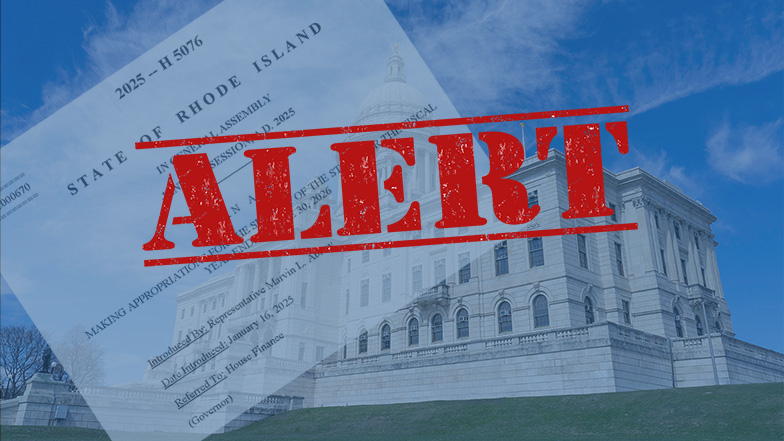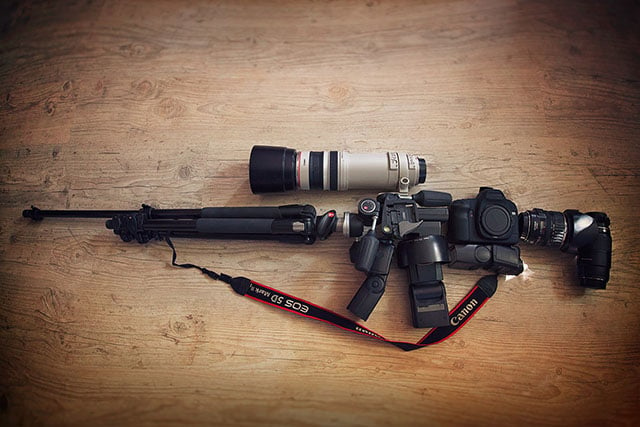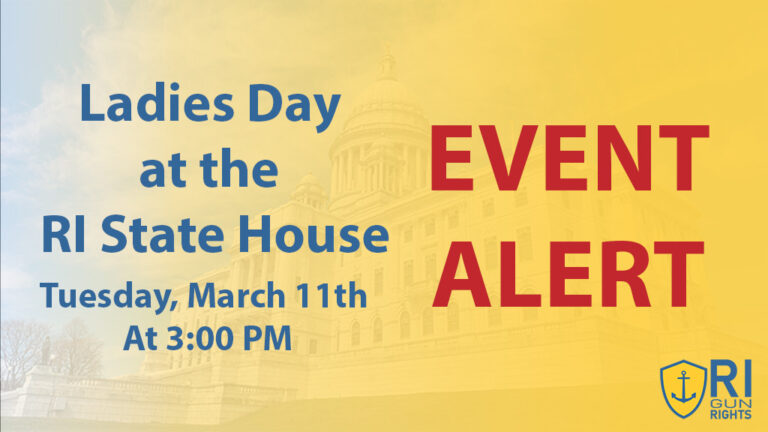Rhode Island Assault Weapons Ban of 2025 Submitted
The Rhode Island Assault Weapons Ban of 2025, included within Governor Dan McKee’s 2026 RI State Budget proposal (link to bill) submitted this past week, highlights a shift in legislative tactics by embedding gun control measures into the budget process. This approach not only infringes on Second Amendment rights and unfairly targets responsible gun owners but also circumvents traditional legislative debate.
Key Provisions of the Proposed Legislation
The legislation broadly defines “assault weapons,” encompassing various semi-automatic firearms with specific technical features:
- Technical Definition of Assault Weapons:
- Semi-automatic rifles with fixed magazines exceeding 10 rounds or detachable magazines combined with features such as:
- Folding or telescoping stocks.
- Barrel shrouds allowing non-trigger hand grip without burns.
- Threaded barrels for suppressors or muzzle attachments.
- Semi-automatic shotguns with fixed magazines exceeding 8 rounds, detachable magazine capability, or revolving cylinders.
- Pistols with threaded barrels, shrouded barrels, or a weight over 50 ounces when unloaded.
- Semi-automatic rifles with fixed magazines exceeding 10 rounds or detachable magazines combined with features such as:
- Prohibition: Manufacturing, selling, transferring, purchasing, or possessing “assault weapons” would be illegal unless exempted.
- Grandfathering Clause: Current owners must register their weapons, render them permanently inoperable, surrender them to law enforcement, or sell them to federally licensed firearm dealers within one year of the law’s enactment.
- Registration Process: Owners must provide personal and firearm details, undergo a fingerprint-supported background check, and pay a $25 registration fee.
Violations are punishable by up to 10 years in prison and fines of up to $10,000. Critics argue that these measures place undue burdens on lawful gun owners while doing little to deter criminal activity.
Conflict with Existing State Law
This proposed legislation appears to directly contradict Rhode Island’s existing prohibition on firearm registration. According to R.I. Gen. Laws §11-47-41:
“No government agency of this state or its political subdivisions shall keep or cause to be kept any list or register of privately owned firearms or any list or register of the owners of those firearms”
The assault weapons ban includes provisions for mandatory registration, effectively attempting to override this statute. However, the proposed legislation does not explicitly amend §11-47-41, leaving the legal conflict unresolved. This contradiction raises significant legal and procedural questions, further complicating the the ban.
Political Reactions
The proposed ban has elicited strong responses from political leaders, reflecting the deep divide over gun control in Rhode Island:
- Speaker of the House K. Joseph Shekarchi: Speaker Shekarchi raised concerns about the inclusion of the assault weapons ban in the state budget. He emphasized: “Regardless of where you stand on the assault rifle ban, this is going to be a very difficult year. It’s a very contentious issue.” Shekarchi noted that the presence of the ban in the budget could complicate bipartisan cooperation: “If we leave that in the budget, I will lose all the Republican votes and a lot of conservative Democratic votes.” He further stated: “Budgets have been clean. Budgets, and we haven’t put any social issues in there. I don’t believe that that should be.” While acknowledging the public’s passion for the issue, he underscored the importance of debating such topics outside the budget process.
- Senate Minority Leader Jessica de la Cruz: A staunch opponent of the bill, de la Cruz argued that the legislation disproportionately impacts responsible gun owners while doing little to combat crime. She criticized the inclusion of the ban in the budget, stating: “If the governor wants to push gun control, perhaps he needs a civics lesson. Legislation is crafted and debated by the General Assembly, not hidden in the state’s budget. He should either run for legislative office or collaborate with lawmakers rather than sidestepping the legislative process and using the budget as a tool for activism.” Her remarks also highlighted broader frustrations with mismanagement of critical systems in the state, which she argued are more pressing issues than this proposed ban.
Implications for Gun Owners
This legislation sets a troubling precedent and raises significant concerns:
- Erosion of Second Amendment Rights: The broad definitions of “assault weapons” and onerous registration requirements could pave the way for further restrictions on lawful gun ownership.
- Legal Contradictions: The proposed registration requirement directly defies Rhode Island’s existing firearm registration ban, potentially setting up legal challenges.
- Privacy Risks: Mandatory registration raises fears about the potential misuse of personal data, particularly in a politically charged environment.
- Burdens on Law-Abiding Citizens: The legislation disproportionately impacts responsible gun owners who use firearms for self-defense, hunting, and sport shooting.
Conclusion
The Rhode Island Assault Weapons Ban of 2025 represents a significant escalation in gun control efforts and tactics. Proponents of the ban argue that it is necessary to enhance public safety, but they fail to provide compelling data showing that possession of these weapons poses a statistical risk to public safety. Even if such data existed, it would not justify infringing on the rights of lawful gun owners, nor would it address the root causes of violence.
As Speaker Shekarchi indicated, robust public hearings will provide an opportunity for all voices to be heard. For gun rights advocates, this is a critical moment to engage with lawmakers and ensure their perspectives are represented in the legislative process. The debate over this bill will undoubtedly shape the future of gun rights in Rhode Island.







